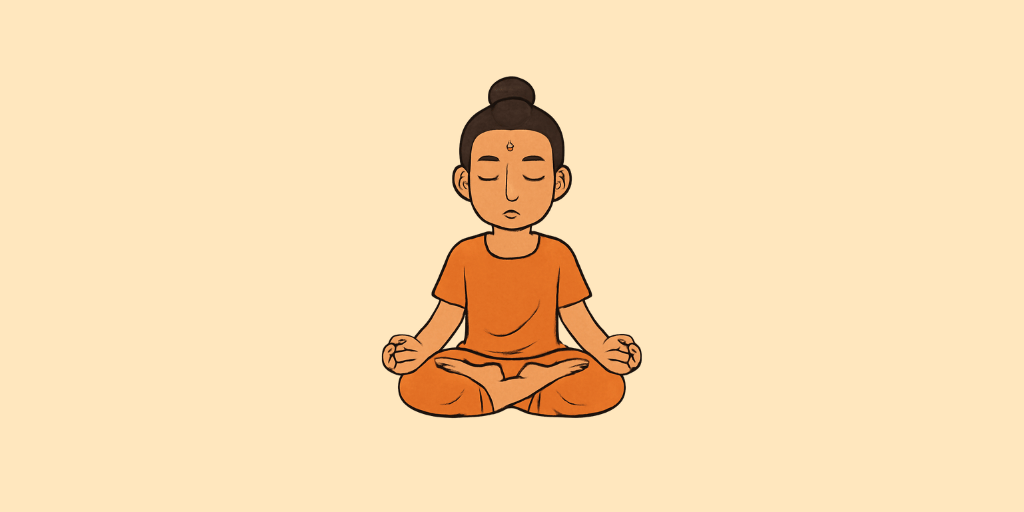Sanskrit name: केवल कुम्भक
English name: Kevala Kumbhaka
Description:
The Sanskrit term Kevala Kumbhaka comes from “Kevala” (absolute, pure) and “Kumbhak” (breath retention), meaning spontaneous or effortless breath retention without inhalation or exhalation. It is considered the highest form of Pranayama (yogic breath control), where the breath naturally pauses, leading to a deep state of stillness and heightened awareness. Unlike Antar Kumbhak (holding after inhalation) or Bahya Kumbhak (holding after exhalation), Kevala Kumbhak occurs without conscious effort, marking an advanced stage of breath mastery.
This technique is described in ancient yogic texts as a sign of deep spiritual evolution, where the practitioner experiences a profound sense of calm, detachment from external distractions, and heightened control over prana (life energy). Kevala Kumbhak is said to activate higher states of consciousness, making it a key practice for meditation, self-realization, and inner transformation.
In modern practice, Kevala Kumbhak is cultivated through consistent Pranayama, meditation, and mindfulness. It promotes mental clarity, emotional balance, and deep relaxation, helping reduce stress and enhance overall well-being. Mastering this breathless state allows practitioners to connect with their true self, fostering inner peace and a deeper sense of spiritual awareness.
Medical conditions (Avoid):
- Respiratory Disorders: Individuals with asthma, chronic obstructive pulmonary disease (COPD), or other serious lung conditions may experience exacerbation of symptoms due to breath retention.
- Cardiovascular Issues: Those with heart conditions, high blood pressure, or a history of stroke should refrain from this practice, as it can put additional strain on the heart.
- Anxiety and Panic Disorders: People prone to anxiety attacks may find breath retention triggers or worsens their symptoms, leading to panic.
- Pregnancy: Pregnant individuals should avoid this practice, as it may affect oxygen supply to both the mother and fetus.
- Recent Surgery: Anyone recovering from surgery, especially abdominal or thoracic, should avoid this as it may hinder healing or cause discomfort.
- Severe Headaches or Migraines: Those experiencing severe headaches or migraines may find that breath retention exacerbates their condition.
- Seizure Disorders: Individuals with epilepsy or a history of seizures should avoid this practice, as it may trigger an episode.
It is always advisable to consult with a healthcare professional before engaging in breath retention practices, especially for those with existing health issues.

